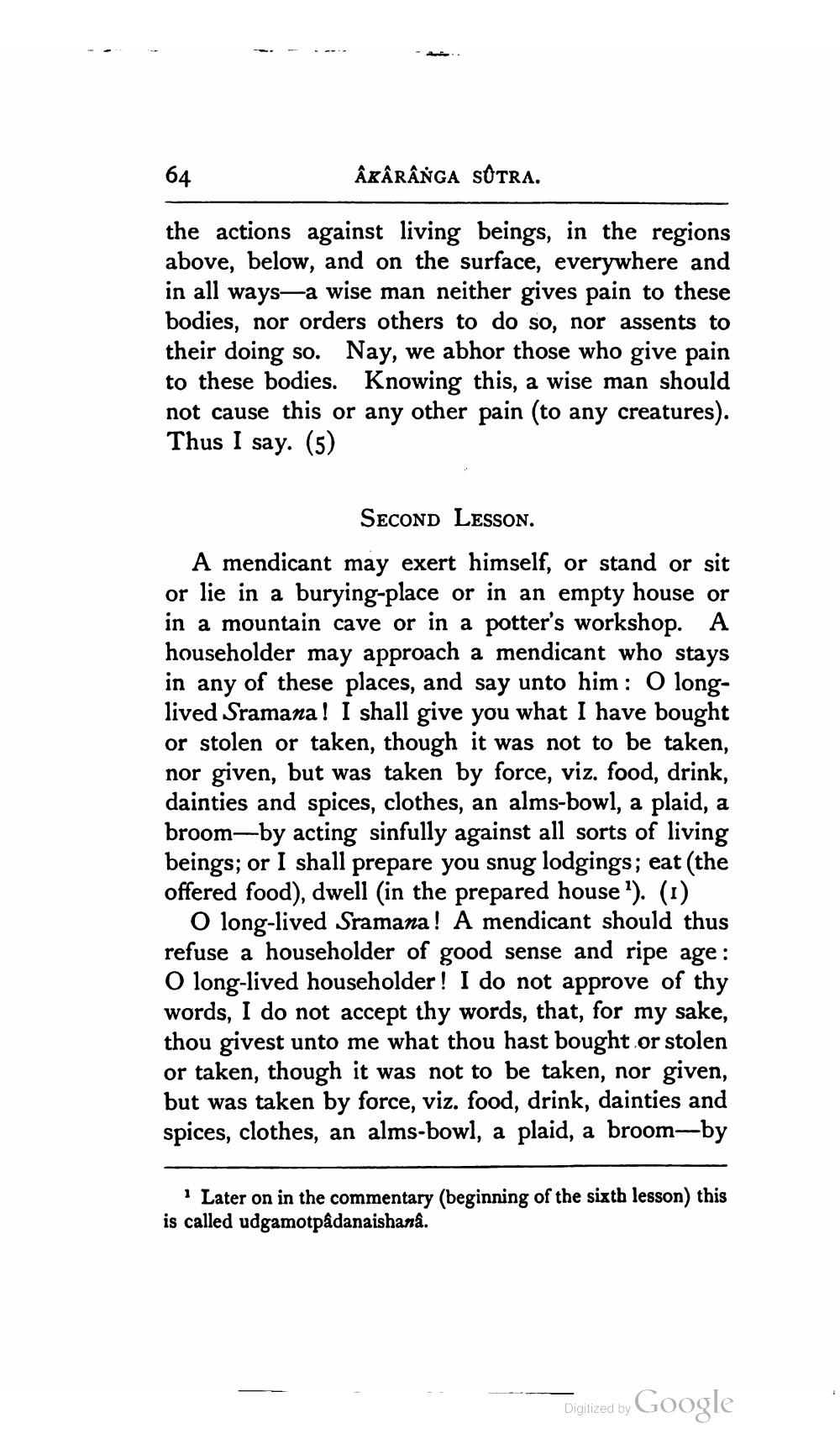________________
-
-
ÂKÂRÂNGA SÚTRA.
the actions against living beings, in the regions above, below, and on the surface, everywhere and in all ways—a wise man neither gives pain to these bodies, nor orders others to do so, nor assents to their doing so. Nay, we abhor those who give pain to these bodies. Knowing this, a wise man should not cause this or any other pain (to any creatures). Thus I say. (5)
SECOND LESSON. A mendicant may exert himself, or stand or sit or lie in a burying-place or in an empty house or in a mountain cave or in a potter's workshop. A householder may approach a mendicant who stays in any of these places, and say unto him: O longlived Sramana! I shall give you what I have bought or stolen or taken, though it was not to be taken, nor given, but was taken by force, viz. food, drink, dainties and spices, clothes, an alms-bowl, a plaid, a broom-by acting sinfully against all sorts of living beings; or I shall prepare you snug lodgings; eat (the offered food), dwell (in the prepared house '). (1)
O long-lived Sramana! A mendicant should thus refuse a householder of good sense and ripe age: O long-lived householder! I do not approve of thy words, I do not accept thy words, that, for my sake, thou givest unto me what thou hast bought or stolen or taken, though it was not to be taken, nor given, but was taken by force, viz. food, drink, dainties and spices, clothes, an alms-bowl, a plaid, a broom-by
· Later on in the commentary (beginning of the sixth lesson) this is called udgamotpadanaishana.
-
Digitized by
Digitized by Google




